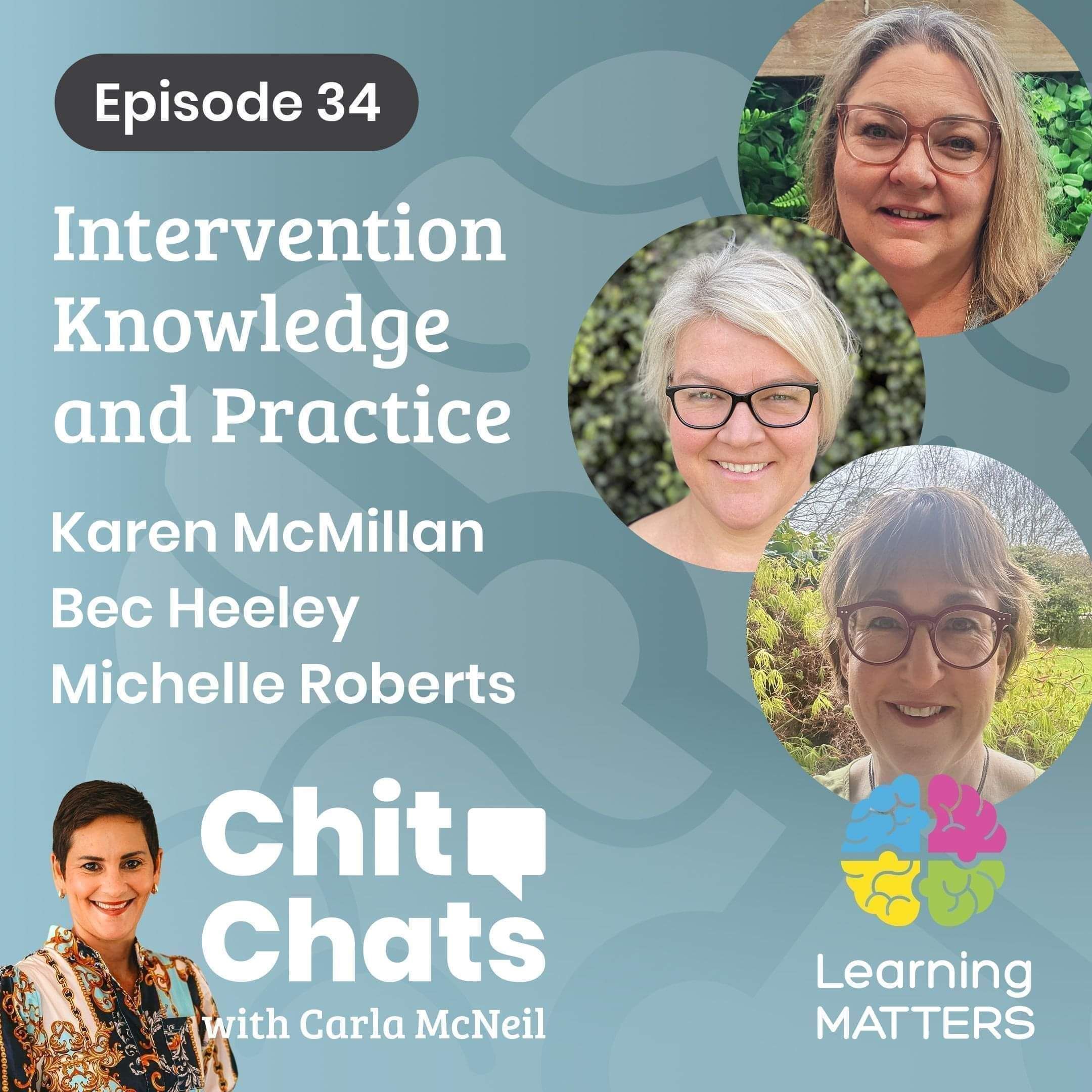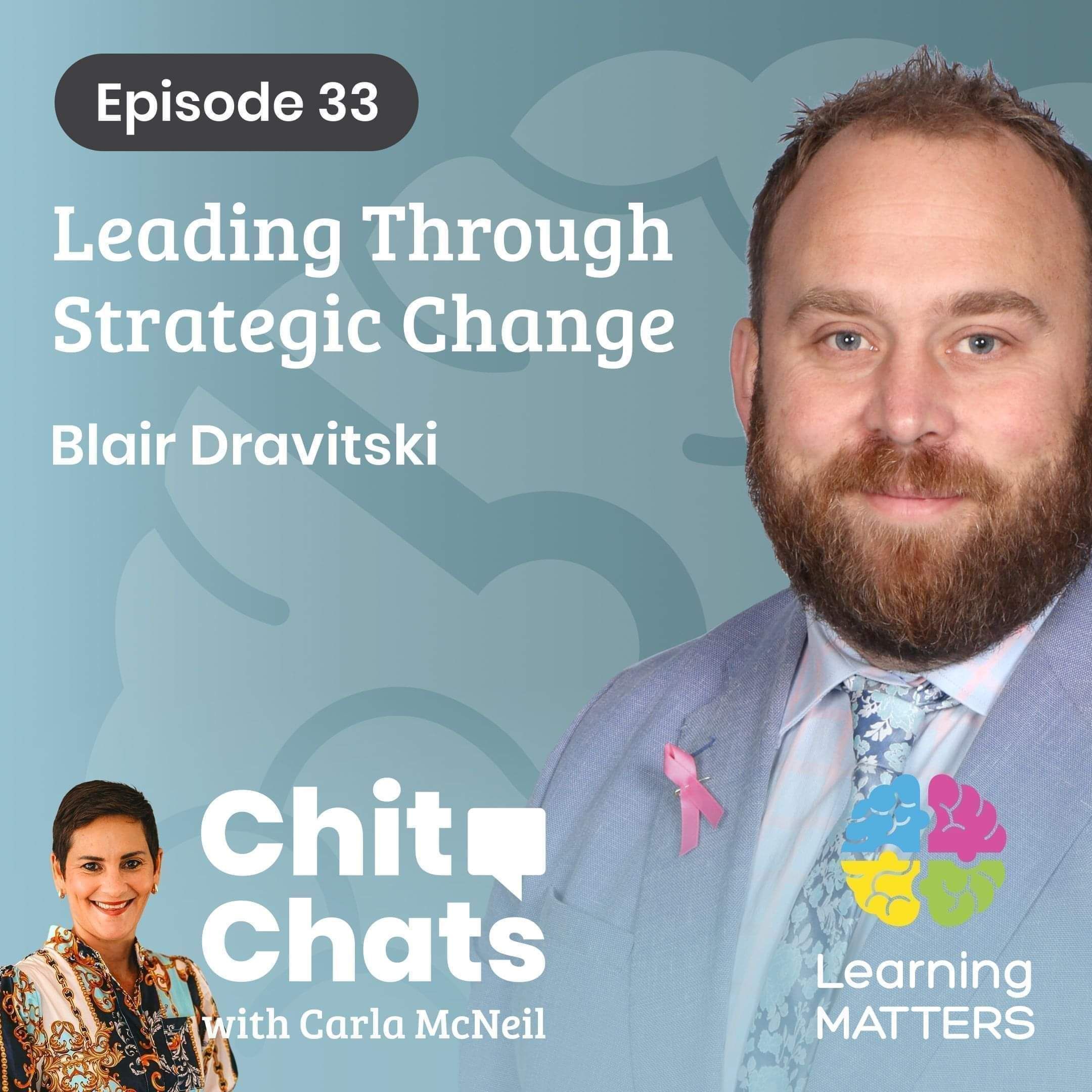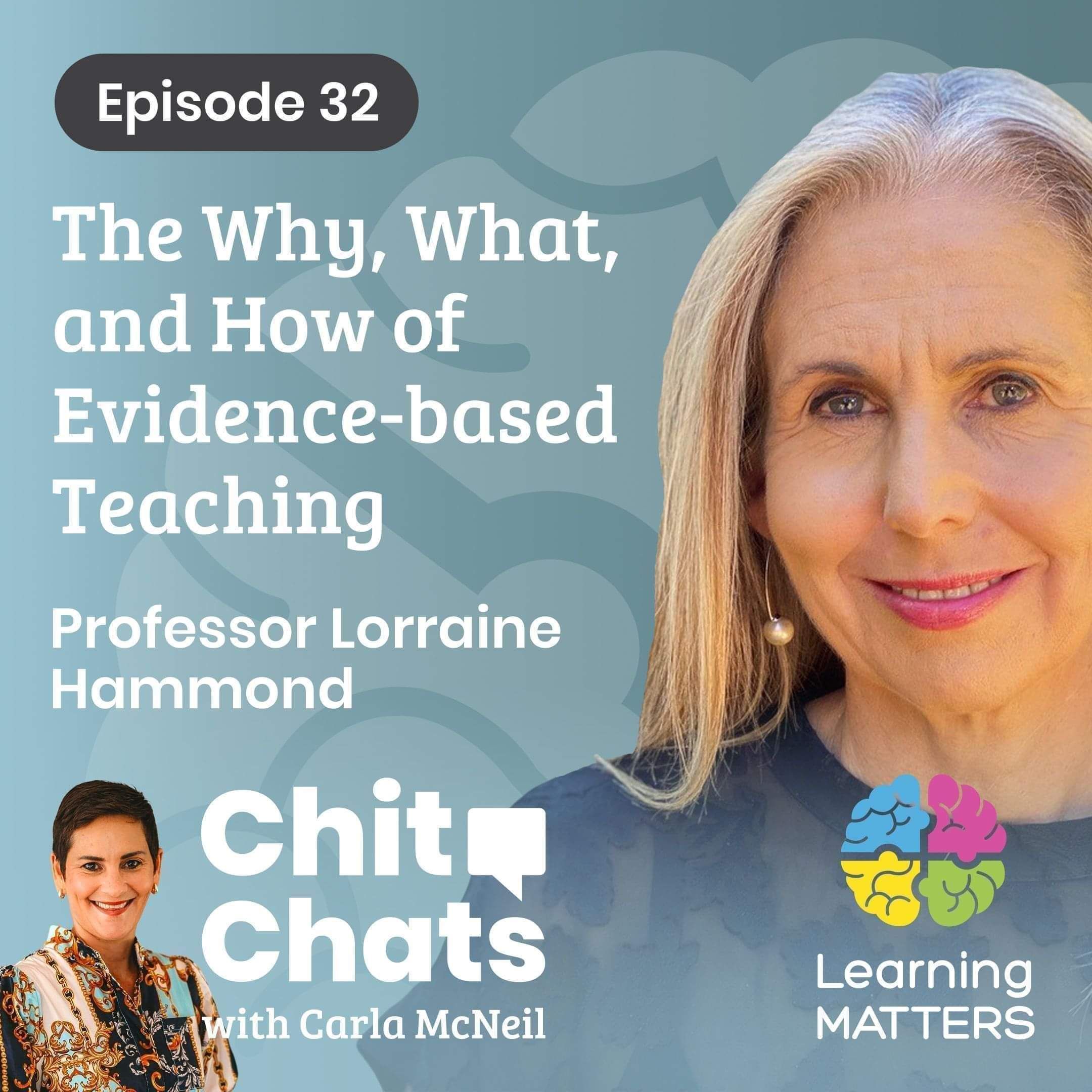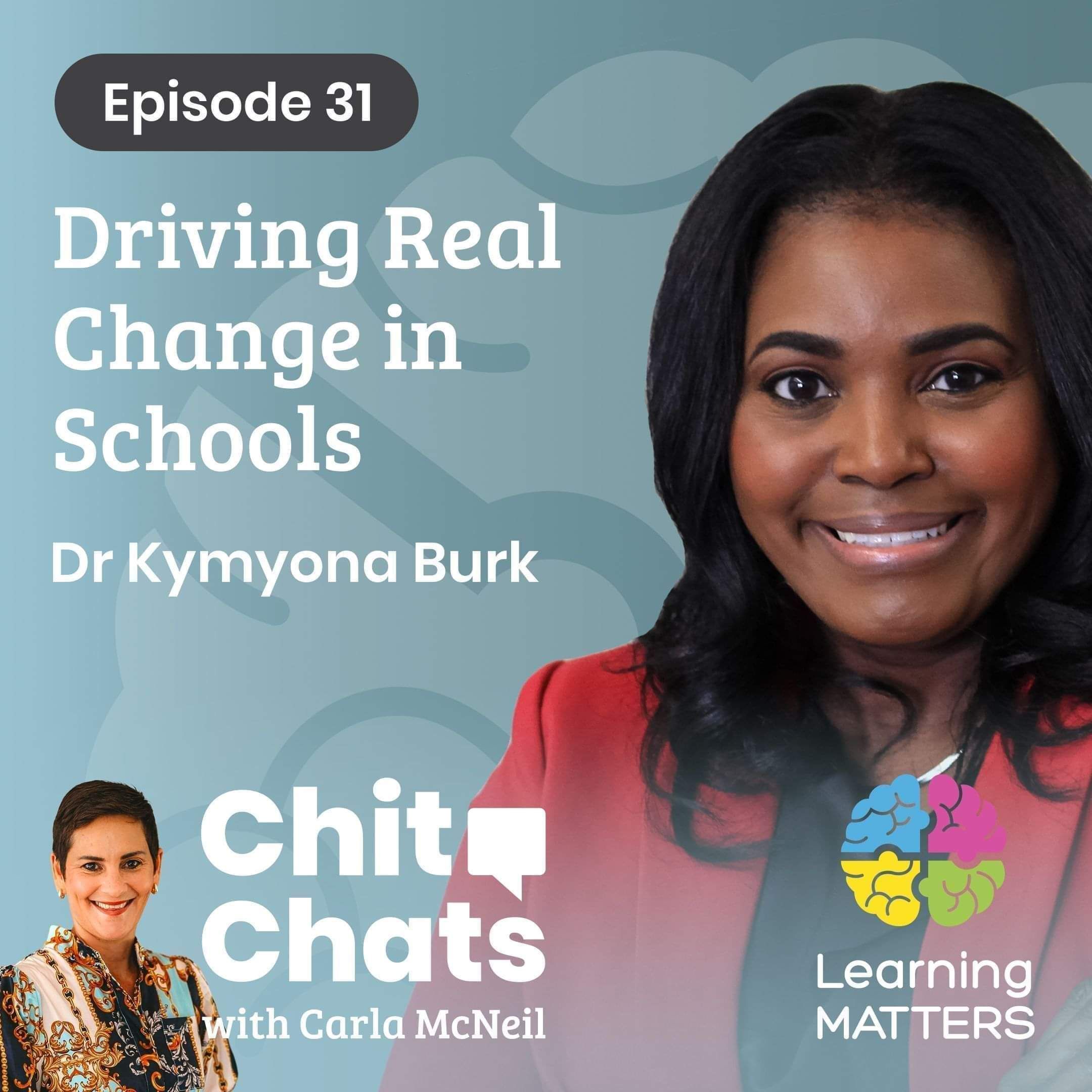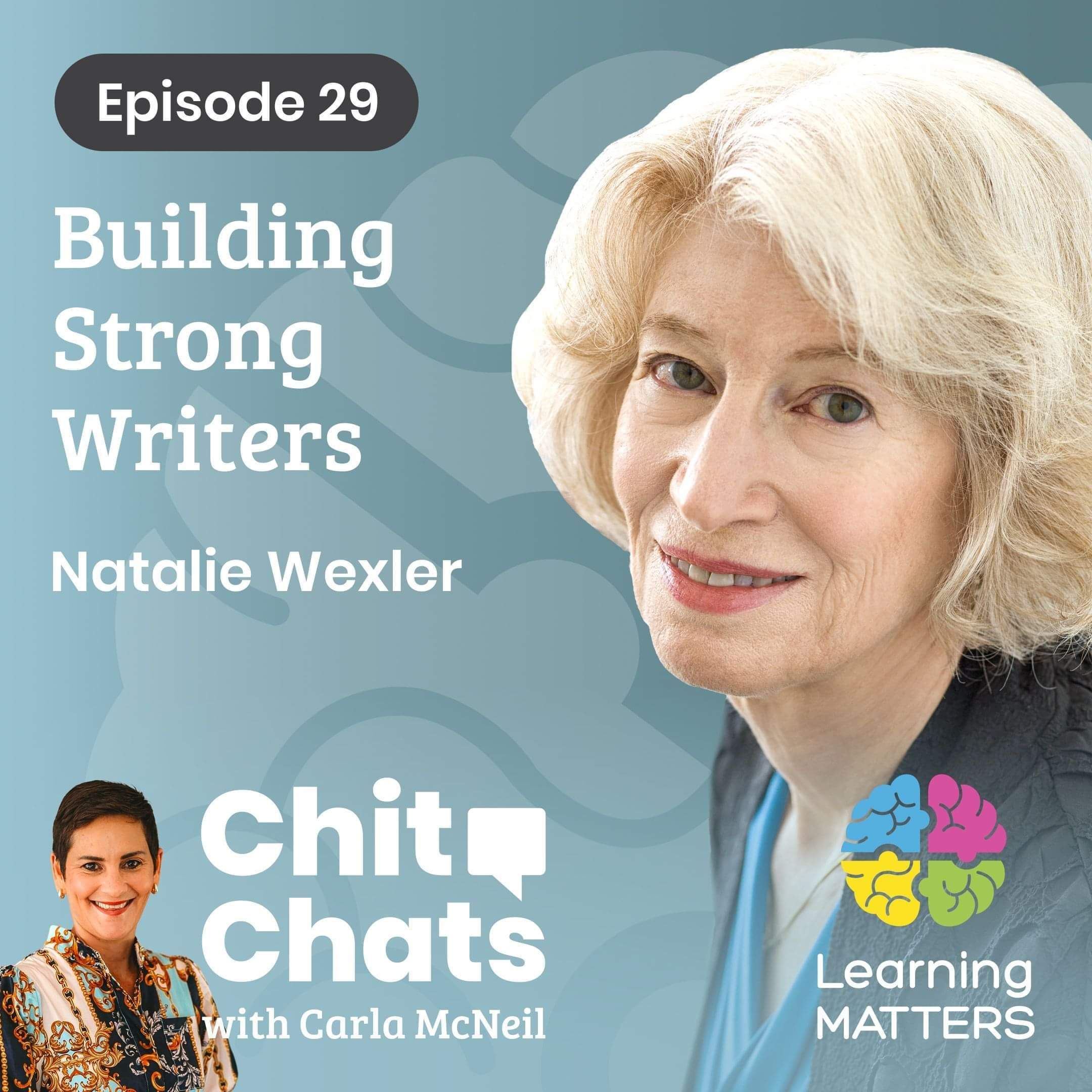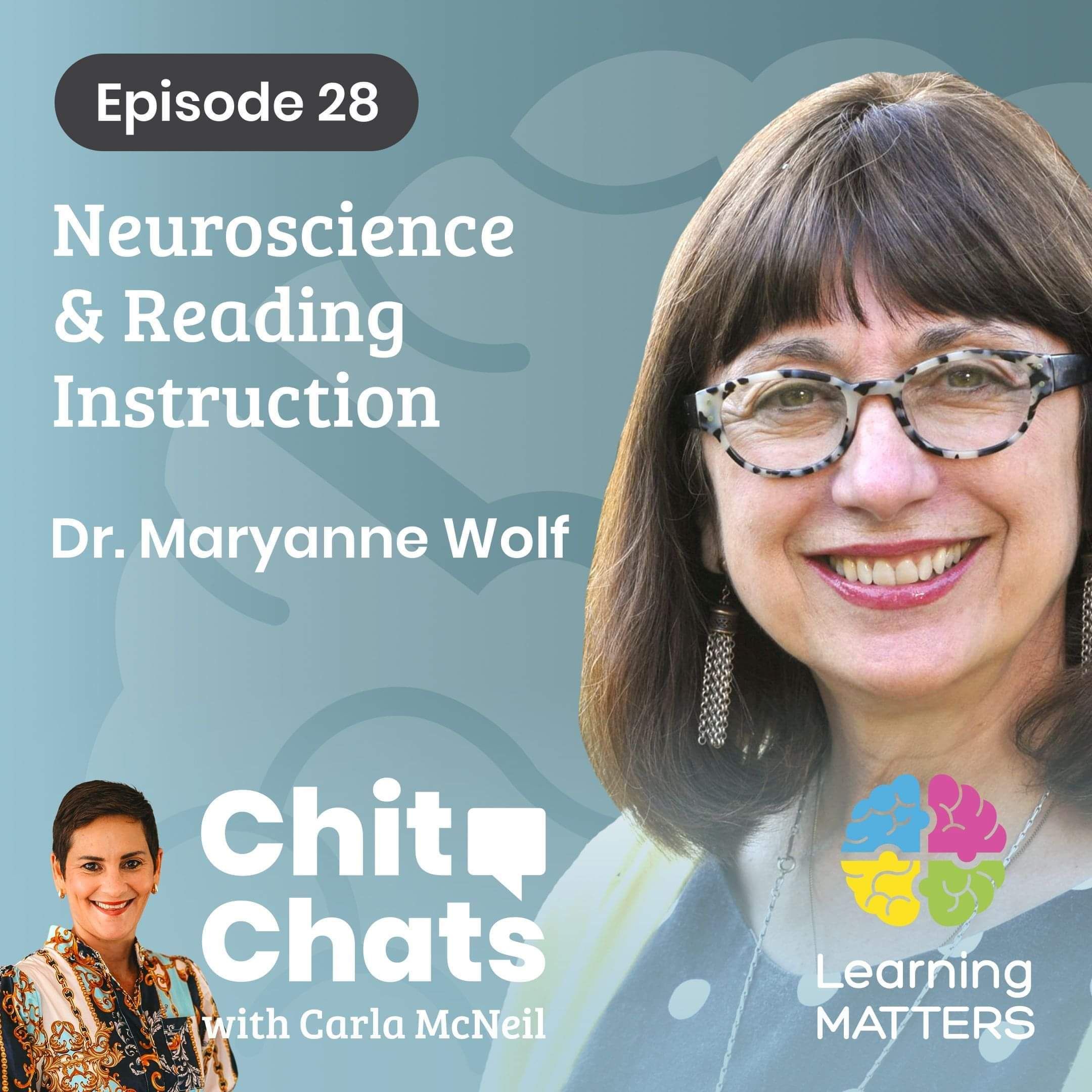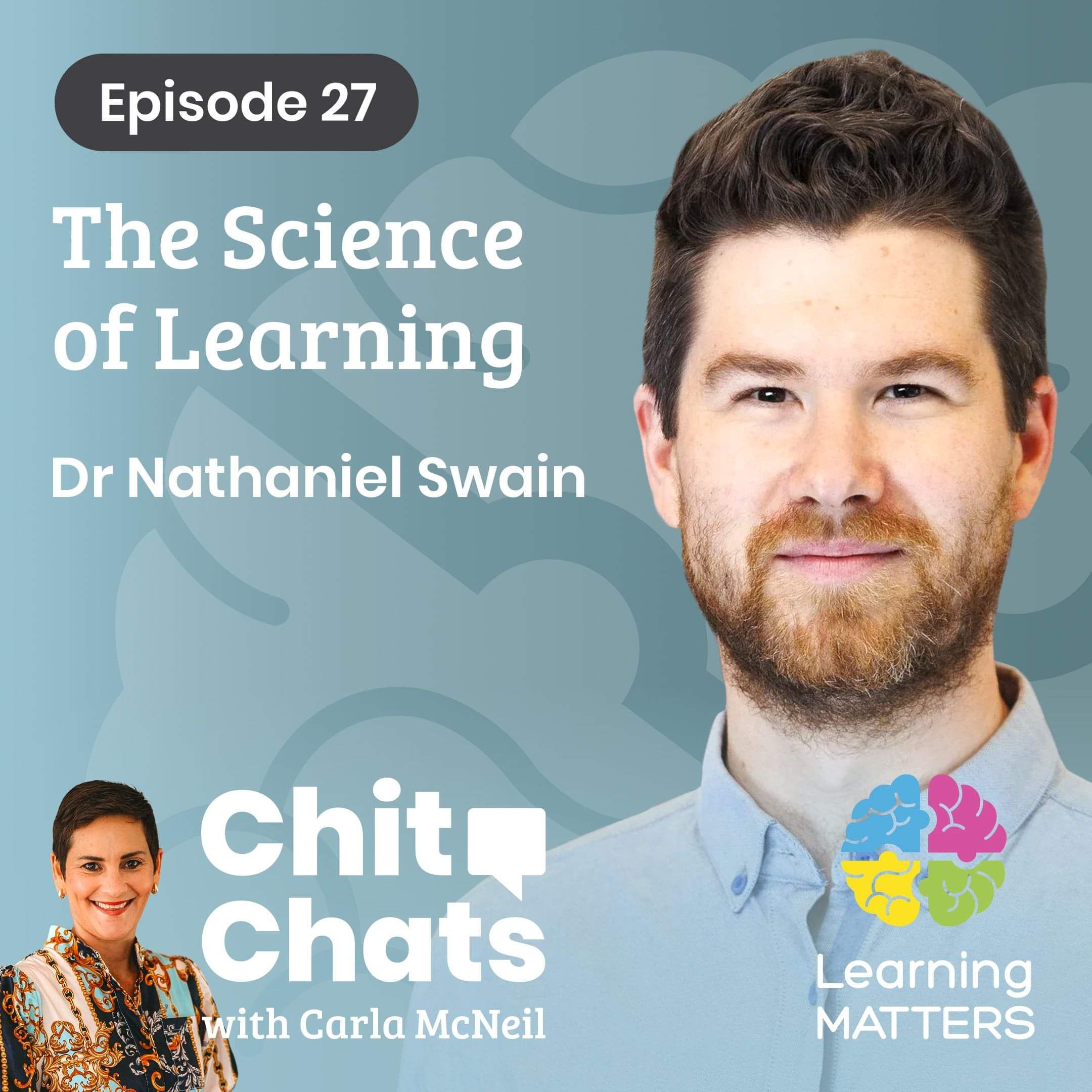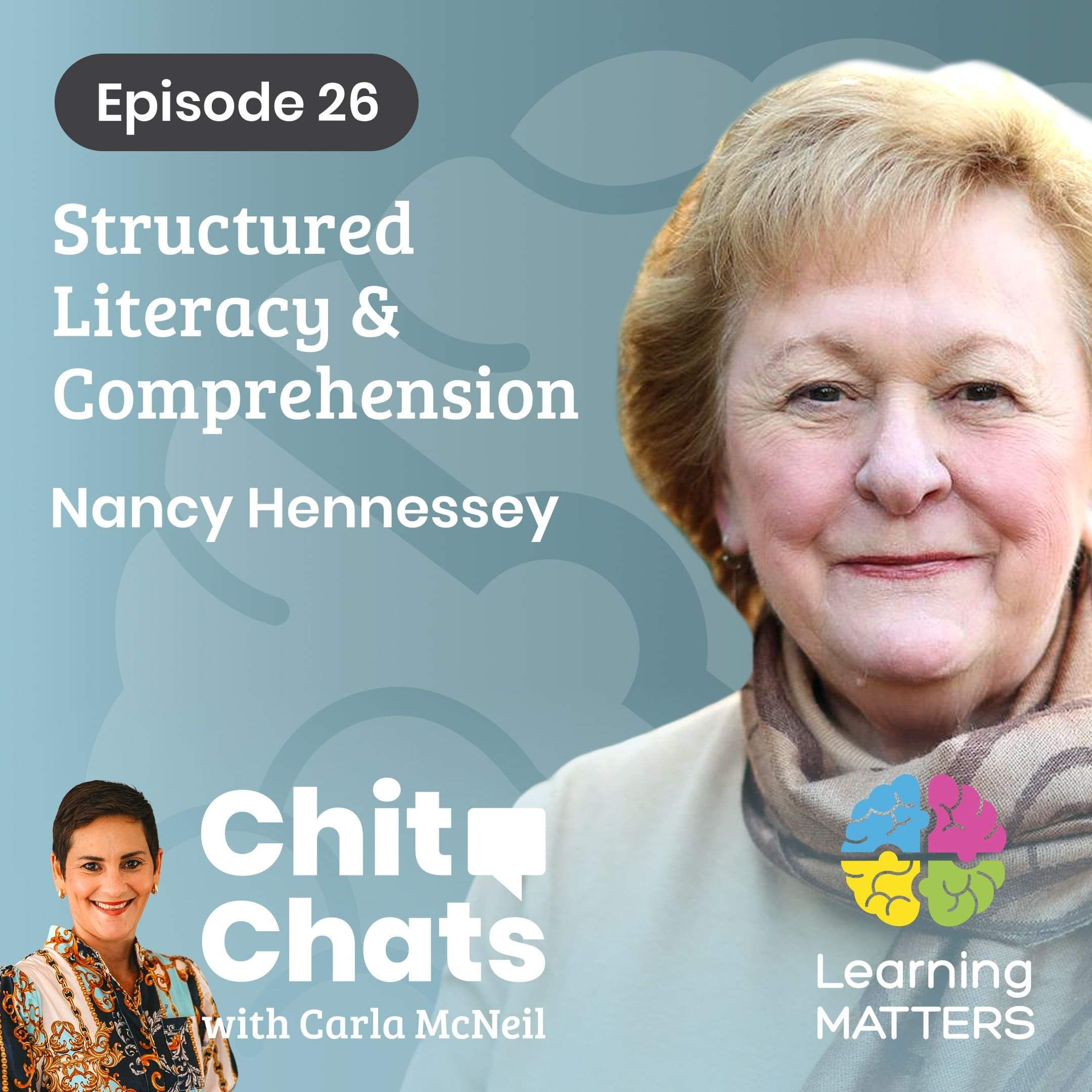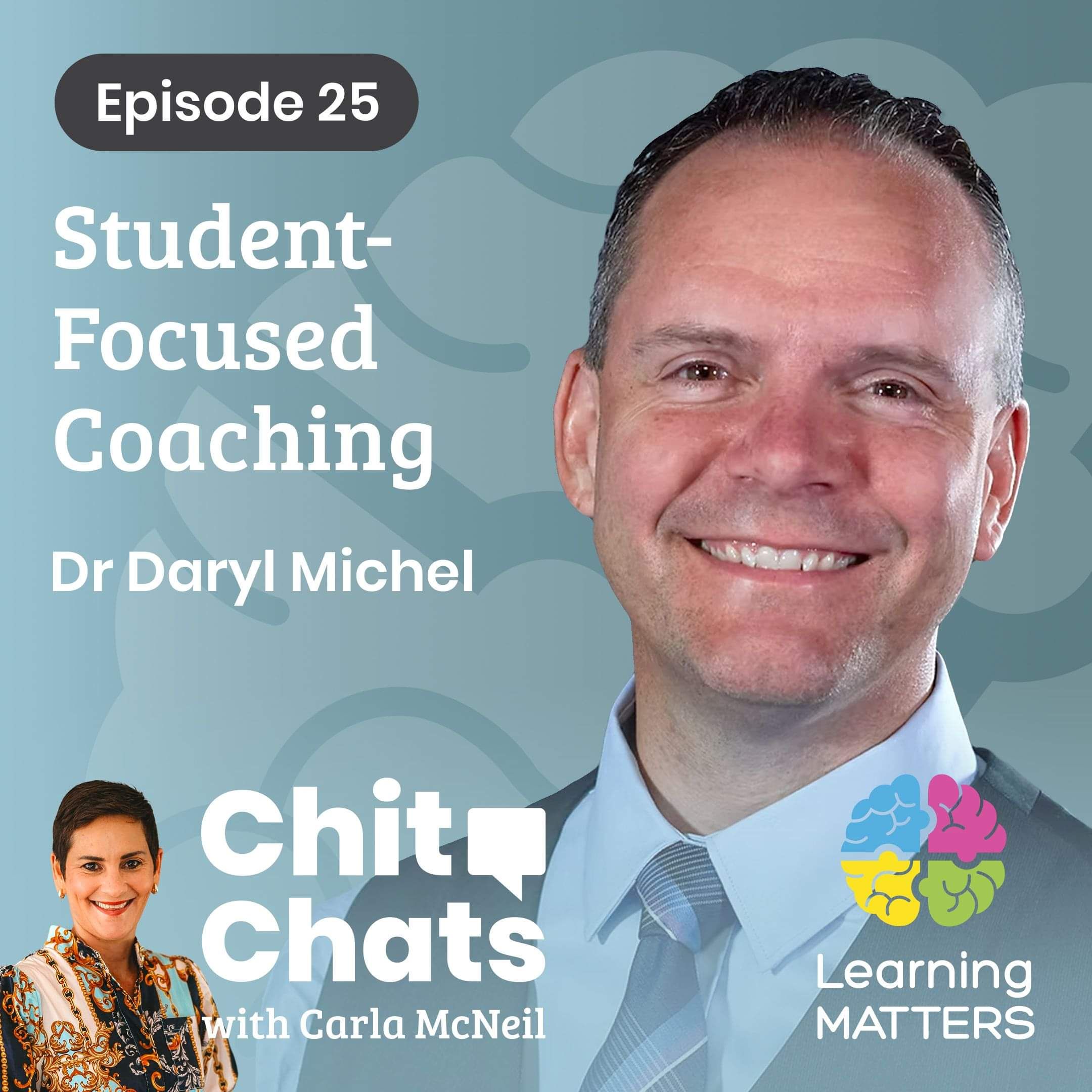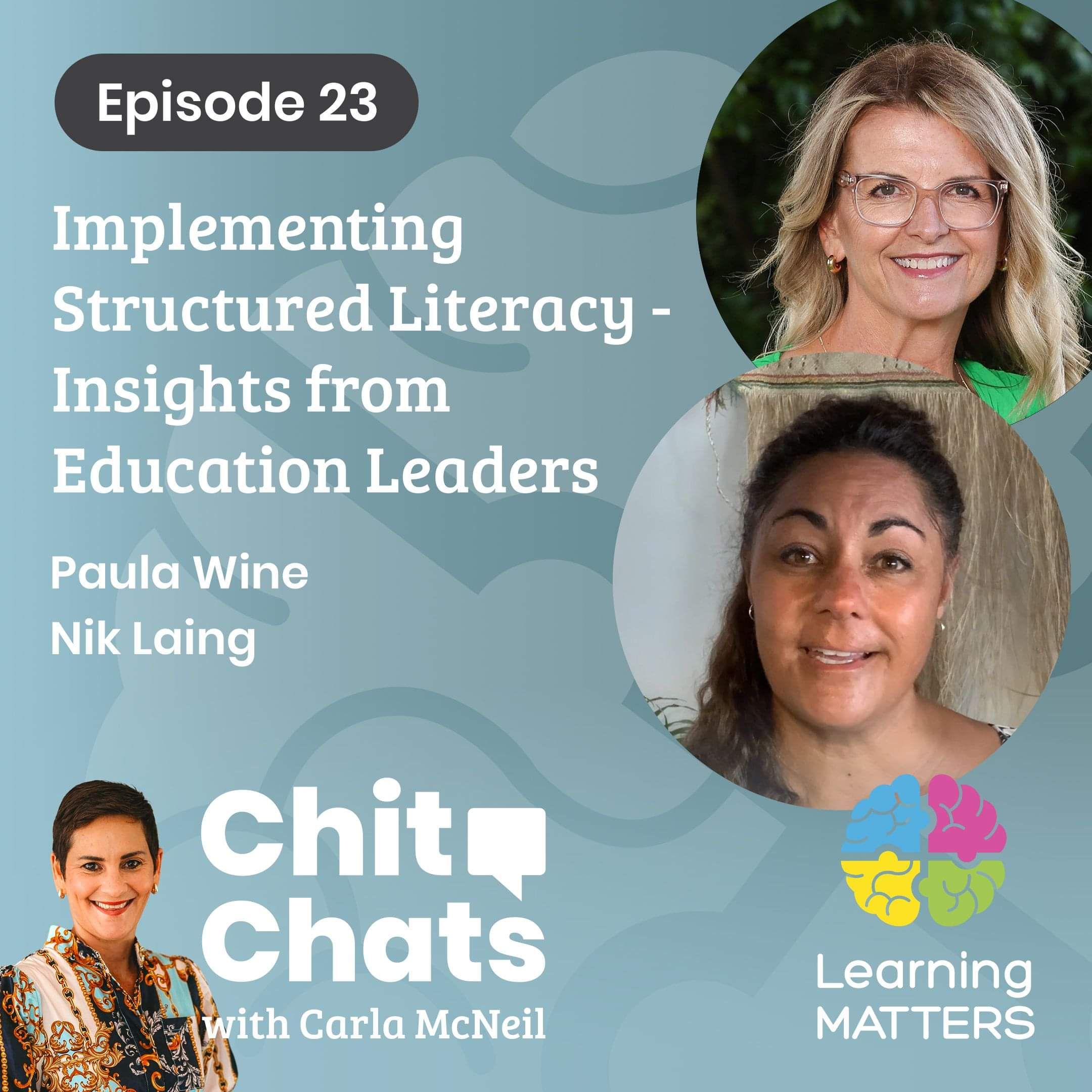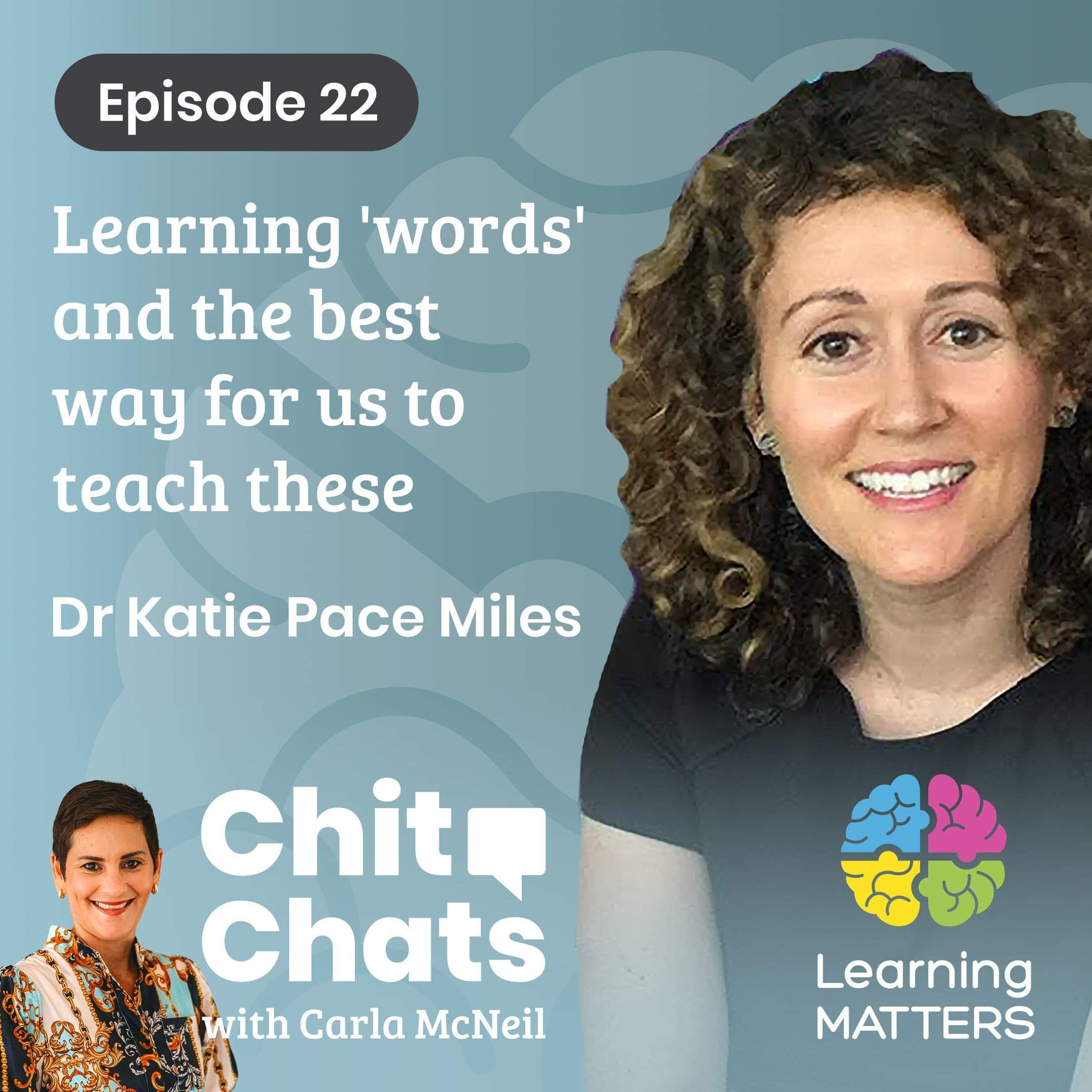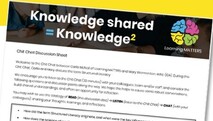You may be just starting out on your professional learning journey; you may be a parent wishing to know more; you may be a school leader working towards building shared understandings and consistent practice.
Learning MATTERS’ Chit Chats are a great source of knowledge and reflection for both educators and parents. We recommend you view these in the following order to systematically build your knowledge in your setting. We encourage you to facilitate these sessions at a team and/or staff meeting, or you might just like to view them on your own.
We advise you use the strategy of READ - LISTEN (listen to the Chit Chat) - CHAT (with your colleagues), sharing your thoughts, learnings and reflections. Of course, you are welcome to dip and dive into whichever you please, but we have strategically ordered these in a bid to build your knowledge and understanding in a cumulative way.
Chit Chats with Carla McNeil
Carla recently connected with Dr Tiffany Hogan to discuss Developmental Language Disorder (DLD), including what it is, how it’s diagnosed, the key signs and symptoms, and its connection to dyslexia.
School Leaders - Structured Literacy in the classroom
March 2024: Carla Chit Chats with Chris Cowman (Waterloo School), Deborah Gosnell (Manurewa West Primary School) and Abby Bates (St Patrick’s School Invercargill) as they discuss Structured Literacy in the classroom.
Dr. Jan Hasbrouck - How we can help build reading fluency for our learners.
January 2024: Carla and Dr. Jan Hasbrouck explain and discuss how we can help build reading fluency for our learners.
Joan Sedita - Writing instruction, with a focus on Joan’s book "The Writing Rope."
December 2023: Carla and Joan Sedita discuss various aspects of writing instruction, with a focus on Joan’s book "The Writing Rope." They explored the broader topic of adolescent literacy and reading instruction across all age groups.
Mary Wennersten, M.Ed. - The Term 'Structured Literacy'
October 2023: Carla and Mary (IDA) discuss the term Structured Literacy. Like others, we have observed the noise circulating regarding the use of the term.
Kareem Weaver - Equity in reading education and how we can make it a reality
August 2023: Carla and Kareem Weaver discuss 'The Right to Read' and what is being done in the US to shift the dial for ALL readers. Change is needed globally and Kareem is at the forefront of instigating that.
Elizabeth Norton PhD - Rapid Automatised Naming (RAN)
August 2023: Carla and Elizabeth Norton PhD discuss rapid automatised naming, explore ways to improve RAN and the instructional implications that might be considered.
2022 Literacy Trial overview
June 2023: Carla, Fiona, Esmee, and Jill discuss and explore various aspects of the literacy & communication support package trialled in 2022. Their conversation delves into the trial's design, implementation strategies, and the tangible impact it had on participants.
Professor Adele Diamond - Executive Functions
Mar 2023: Executive Functions, with Professor Adele Diamond. What is it, how do we work with it, and can we develop it?
Emily Hanford - Educational achievement in literacy
February 2023: A reporter's perspective after 6 years of investigation. What we know to be true now, with Emily Hanford.
Dr Linda Farrel - Principles and Elements
Nov 2022: Dr Linda Farrell explains the Principles and Elements of the approach many schools are adopting and helps us to understand how this works.
Dr Carolyn Strom - How the brain learns to read
How the brain learns to read, with Dr Carolyn Strom.
Dr. Jan Hasbrouck - Building reading fluency
June 2022: Carla and Jan explain and discuss how we can help build reading fluency for our learners.
Katie Tompkins - Structured Literacy in a secondary school
May 2022: Carla and Katie Tompkins chat about implementing Structured Literacy in a secondary intervention setting.
Dr Tanya Serry - Implementing Structured Literacy
March 2022: What types of books are used in schools implementing a Structured Literacy approach? Text types explained, with Dr Tanya Serry.
Dr. Stephanie Stollar - Types of intervention models
February 2022: Carla and Stephanie discuss Response to Intervention (RTI) and Multi-Tiered Systems of Support (MTSS), and what characteristics school leaders should ensure are present in their intervention system.
Dr. Louisa Moats - Dyslexia and the crucial nature of spelling
October 2021: Carla and Louisa discuss dyslexia and the crucial nature of teaching SPELLING. Teachers MUST know what they are doing. They MUST be gifted with the knowledge to teach every child they sit across from
Professor Pamela Snow - What parents and teachers need to know about the teaching of reading
August 2021: What parents and teachers need to know about the teaching of reading and what to look out for at home, with Professor Pamela Snow.
Dr Lorraine Hammond - Explicit Direct Instruction
July 2021: Explicit Direct Instruction and considerations for policy makers and university lecturers, with Dr Lorraine Hammond.
Dr Anita Archer - Explicit Instruction
July 2021: A deeper dive into Explicit Instruction, with Dr Anita Archer.
Professor James Chapman - The history of teaching reading in New Zealand
April 2021: The history of teaching reading in New Zealand, how we’ve got to where we are in New Zealand, with Professor James Chapman.
David Kilpatrick - What the research has taught us
Oct 2020: Carla and David (author of Equipped for Reading Success) discuss what the research has taught us about how the brain learns to read, why phonemic awareness is crucial as a foundation skill, what is orthographic mapping and how does this process work, and recommendations for classroom teachers who want to be able to ensure every student under their watch is literate.
Other supporting material and next steps:
To further build your knowledge and understanding of some of the terms used in these Chit Chats, download our Glossary of Literacy Terms here.
If you would like to see some practical teaching videos in bite-sized pieces, you may wish to check out our Leap into Literacy Series.
Be sure to also check out the numerous FREE downloads from our website, which will also go a long way to building knowledge and practice.
If you are ready to take the next step with your professional learning in an even more facilitated and guided way, you might like to do one or all of the following;
Enrol in one of our professional learning opportunities
Subscribe to the iDeaL Approach and have access to further professional learning, assessments, teaching resources and leadership information at your fingertips
Contact us about support for your school.


